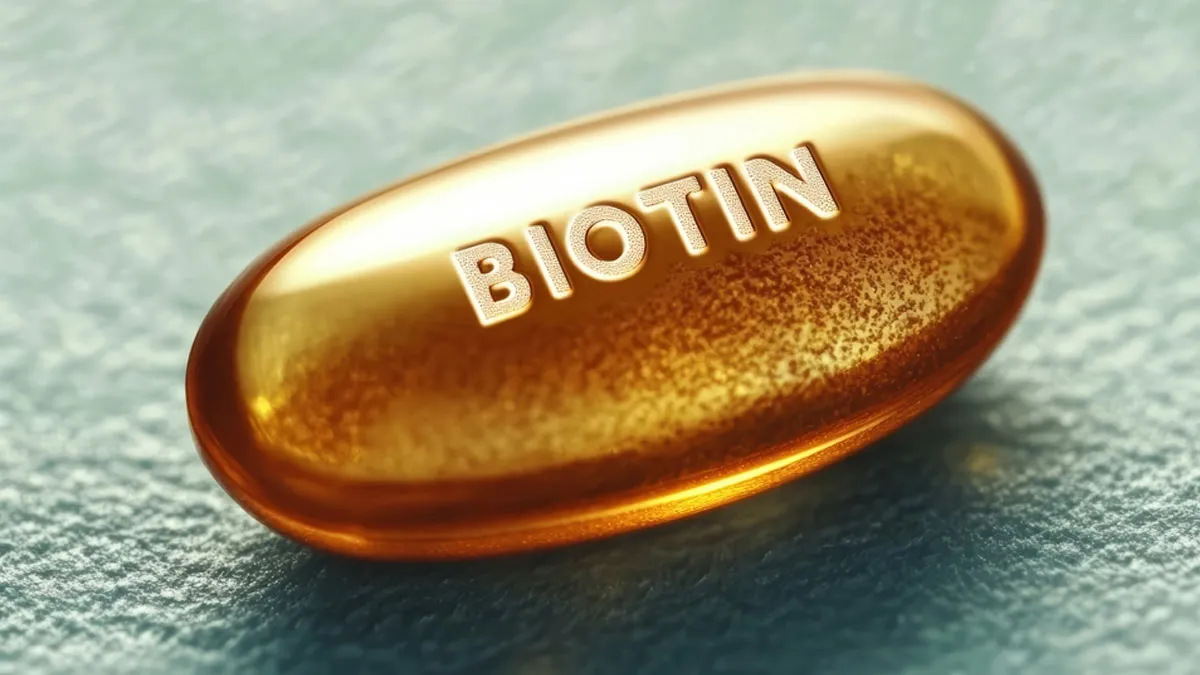Managing blood sugar levels is a daily challenge for millions of people worldwide, especially those living with conditions like type 2 diabetes or insulin resistance. While diet, exercise, and prescribed medications remain the cornerstone of treatment, many are turning to supplements to support their health. Among these, biotin tablets have emerged as a surprising contender in the world of natural blood sugar support.
Although traditionally known for supporting healthy hair, skin, and nails, biotin (also known as vitamin B7) plays an important role in carbohydrate metabolism, which may explain why it’s gaining attention among individuals seeking better blood sugar control.
Understanding Biotin: More Than Just a Beauty Vitamin
Biotin is a water-soluble B-vitamin that your body needs to metabolize fats, carbohydrates, and proteins. It functions as a coenzyme for several key metabolic processes, helping the body convert food into usable energy. It’s found naturally in foods like eggs, nuts, seeds, sweet potatoes, and spinach.
In most cases, people get enough biotin through their diets, but factors like pregnancy, certain medications, alcohol use, and health conditions such as diabetes can lead to low biotin levels.
Interestingly, emerging research has begun to explore whether supplementing with biotin tablets may help support blood sugar control, particularly for individuals with diabetes or impaired glucose tolerance.
The Link Between Biotin and Blood Sugar
Several studies have investigated biotin’s potential impact on blood glucose levels. In particular, biotin seems to enhance the activity of enzymes involved in glucose regulation and insulin sensitivity. Here’s what the research says:
- Improved glucose metabolism: Biotin plays a role in activating enzymes like glucokinase, which is involved in the first step of glucose utilization in the liver. This enzyme helps regulate the amount of sugar taken up by liver cells, which can help stabilize blood sugar levels.
- Increased insulin sensitivity: Some studies suggest that biotin may help improve how the body responds to insulin, particularly in individuals who are insulin resistant.
- Support for diabetic neuropathy: In some clinical trials, high doses of biotin have shown potential benefits in managing symptoms of peripheral neuropathy, a common complication of long-term diabetes.
One study published in the journal Diabetes Technology & Therapeutics found that patients with type 2 diabetes who took biotin supplements in combination with chromium picolinate experienced significantly improved glycemic control. While biotin alone may not be a magic bullet, these results point to its possible supportive role.
What to Know Before Taking Biotin Tablets
While the idea of using supplements to support blood sugar control is appealing, it’s important to approach the topic with care. Not all supplements are created equal, and individual needs vary.
Here are a few things to consider if you’re thinking about adding biotin tablets to your wellness routine:
1. Dosage Matters
Typical over-the-counter biotin supplements range from 1,000 mcg to 10,000 mcg (1 mg to 10 mg). While these doses are considered safe for most people, very high intakes may not offer additional benefits for blood sugar regulation and should only be used under medical supervision.
The recommended adequate intake for adults is around 30 mcg per day, but therapeutic doses for managing blood sugar or other health issues often exceed this level.
2. Potential Interactions
Biotin is generally safe and well-tolerated, but it may interfere with some lab test results, particularly those measuring thyroid hormones, cardiac markers, and vitamin D levels. If you’re taking biotin tablets, be sure to inform your healthcare provider before undergoing any blood tests.
Also, biotin may interact with certain medications, including anti-seizure drugs and antibiotics, which can affect biotin absorption or metabolism.
3. Best When Combined with a Healthy Lifestyle
No supplement can replace a healthy lifestyle. Even if biotin tablets help support blood sugar levels, their effectiveness will be limited without a balanced diet, regular physical activity, adequate sleep, and stress management.
People with diabetes should continue monitoring their glucose levels, taking prescribed medications, and following the guidance of their healthcare team.
4. Look for Quality Brands
Since supplements are not regulated as strictly as pharmaceuticals, quality can vary significantly between brands. Choose biotin tablets from reputable manufacturers that use third-party testing, follow Good Manufacturing Practices (GMP), and provide clear labeling.
Who Might Benefit Most?
While anyone can take biotin for general health, certain groups may benefit more from its potential blood sugar-regulating effects:
- People with type 2 diabetes: Especially those experiencing fluctuating blood sugar levels or early signs of insulin resistance.
- Individuals with metabolic syndrome: This condition, characterized by high blood pressure, excess abdominal fat, and elevated blood sugar, may respond well to additional metabolic support.
- Those with low biotin levels: Deficiency is rare, but individuals on certain medications or with conditions that impair nutrient absorption (like Crohn’s disease) may need supplemental biotin.
Are There Any Side Effects?
Biotin is considered non-toxic and is excreted through urine, meaning that the risk of overdose is minimal. However, taking excessive doses (especially those over 10,000 mcg) without medical supervision is not recommended.
Some people report mild side effects like nausea, cramping, or skin rashes. If any adverse symptoms occur, it’s best to stop taking the supplement and consult a healthcare professional.
Final Thoughts
Research into biotin tablets and their role in blood sugar management is still evolving, but the early signs are promising. By supporting key enzymes in glucose metabolism and potentially improving insulin sensitivity, biotin may offer subtle but meaningful benefits for those seeking to stabilize their blood sugar.
Still, it’s important to remember that biotin should be considered part of a comprehensive health strategy, not a standalone solution. If you’re thinking about incorporating biotin into your supplement routine, speak with your doctor especially if you’re already managing a medical condition like diabetes.
In a world where chronic conditions like diabetes are on the rise, every tool matters. Whether you’re drawn to biotin tablets for their beauty benefits or their metabolic support, they just might play a helpful role in your overall wellness journey.



